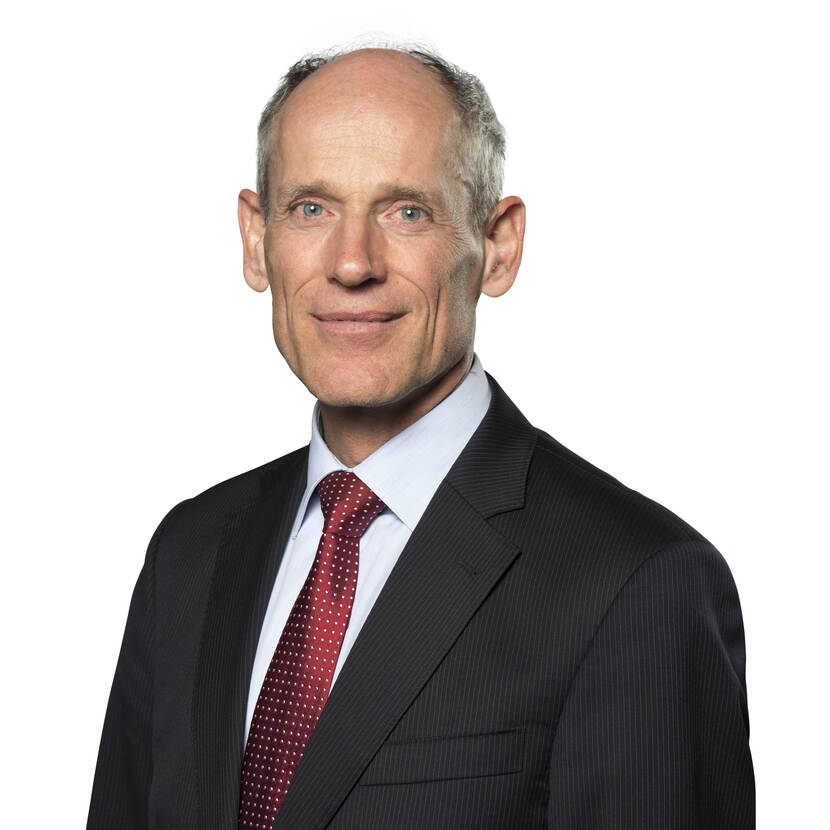Ambassador Lambert Grijns - Indonesia
The ambassador
The ambassador

Lambert Grijns
See the curriculum vitae of ambassador Grijns on rijksoverheid.nl (in Dutch)
You were born in Indonesia in the 1960s. You came back as a student intern in the 80s. And you’ve been ambassador since 2020. What’s it like to be back?
‘I’ve always felt a sense of nostalgia for Indonesia. The smells and flavours. The friendly and courteous way Indonesians interact. It’s all part who I am. I lived here until I was eight years old and once back in the Netherlands I always wanted to return. And I did. As a student I arranged an internship in Bandung. I feel honoured to be back as the ambassador; it’s very special.’
Comparing these three periods, how has the country changed?
'The high level of poverty in the sixties meant that very little was possible. Even my family lived on white rice and dried fish. The economy grew massively in the eighties but people enjoyed little personal freedom. A lot more is possible these days. Young people are free; some are even politically active. Most noticeably, the cities have seen the growth of a group of self-confident, assertive and well-educated young people. This is partly as a result of their studies in colleges and universities in the Netherlands. These young people can easily compete with their peers in other Southeast Asian countries and the West. This contrasts with rural areas, where the level of education is still quite low.’
The history between the Netherlands and Indonesia goes back 400 years and has had its ups and downs. How’s the relationship now between the two countries?
‘The relationship between the two countries is good. We share a very special history. Whereas the debate in the Netherlands tends to be fixated on the past, Indonesians prefer to look to the future. There’s an appreciation for and understanding of both approaches. The Netherlands and Indonesia work together closely in a variety of areas: the economy, science, education and culture.’
Can you give an example of economic collaboration?
‘Indonesia sees the Netherlands as its export gateway to Europe. And we see opportunities in Indonesia for the circular economy, for example. This leads to cooperation in areas such as transport and logistics; areas in which both Indonesian and Dutch importers and exporters can profit.’
And an example of scientific and educational collaboration?
‘In the field of medicine, for example, Dutch and Indonesian scientific institutes have been working together for 30 years, particularly in combating infectious diseases. These bodies include the LUMC in Leiden, Erasmus MC in Rotterdam, the Eijkman Institute for Molecular Biology in Jakarta and universities throughout Indonesia. And there’s a lot of collaboration in other scientific fields as well. Last November we held the first WINNER, the Week of Indonesia-Netherlands Education and Research, to bring all these scientists and students from both countries together. Online, of course. This will be an annual event with not only Indonesian and Dutch teachers, students and researchers participating, but also ministers from both countries and representatives from the business community, government and civil society. WINNER seeks to help meet the 17 Sustainable Development Goals (SDGs).’
One of the SDGs calls for an end to hunger, for food security and sustainable agriculture. As the second largest agricultural exporter in the world, what role can the Netherlands play in this regard?
‘With a population of over 270 million people, food security is a top priority in Indonesia. At the same time, the country can benefit from sustainable agriculture as a way to combat deforestation. The Netherlands is working with the Indonesian government on sustainable ways to increase food production on the existing arable land mass. This will provide farmers with economic opportunities while at the same time protecting nature.’
What is the role of the embassy in making these collaborations possible?
‘The embassy is committed to a fair and sustainable world in line with the SDGs. We do this through our access to local authorities and local networks. The embassy brings parties into contact with each other, such as the business community. We are also the point of contact for Dutch people in Indonesia if they have questions or need advice.’
What can the Dutch learn from Indonesians?
‘In the Netherlands individual interests often take precedence. This sometimes makes it difficult to tackle major communal challenges. Indonesians are more flexible; better able to put their own interests aside for the common good. In contrast to how things are in the Netherlands, in Indonesia the group is often more important than the individual.’
Erasmus Huis is the only Dutch cultural centre abroad. What is the added value of this centre?
‘The Erasmus Huis powers the relationship between the Netherlands and Indonesia. It attracts tens of thousands of Indonesians every year, mostly young people. They come for the many online and real-world events that take place in the Erasmus Huis. Activities include theatre, dance and music performances, but also discussions on political and societal issues such as press freedom, democracy, internet freedom, and sexual and reproductive health and rights. And the annual Pasar Belanda, with its cheese, stroopwafels and mini pancakes is also very popular, attracting 7,000 visitors in one day. It’s fantastic that we have the Erasmus Huis. And everyone in Jakarta has heard of it. It’s the best example of how a relationship between two countries is built by contact between people.’
What are you proud of?
‘The fact that as Dutch ambassador in Indonesia I can lead a great team of Dutch and local colleagues. From Jakarta, from the Netherlands Business Support Office in Surabaya and the Honorary Consulates in Bali, Medan and Surabaya – we’re all continually working to further deepen and strengthen the special relationship with Indonesia.'
